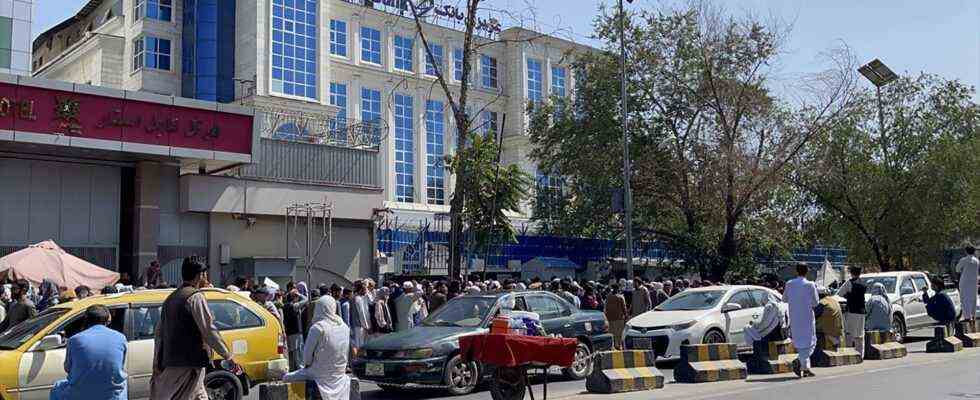Status: 02.09.2021 3:38 p.m.
The US withdrawal is likely to plunge the already weak Afghan economy into a deep crisis. Meanwhile, the Taliban are apparently taking steps to keep the banking system going.
According to experts, Afghanistan’s economy will collapse significantly after the withdrawal of US troops and the rise of power by the Taliban. The country’s gross domestic product (GDP) could shrink by 9.7 percent this year, according to the Fitch rating agency. She had previously forecast growth of 0.4 percent for this year. In the coming year, a further decline of 5.2 percent is to be expected, it said.
“The very turbulent manner in which the US security forces are leaving the country and the Taliban have taken power means that the economic stresses on the country will be felt in the short term,” say the analysts from the research department of the credit rating agency .
The experts emphasize, however, that there is a risk that the economy will develop significantly worse. According to Fitch experts, other economies that have faced similar political shocks have collapsed.
Weak economic data
Afghanistan is one of the poorest countries in the world. It has many coveted mineral resources such as lithium, copper, rare earths and oil. Afghanistan’s GDP was around $ 20 billion last year. According to the World Bank, aid made up almost 43 percent of this. For comparison: For a country with around 38 million inhabitants, which is almost twice the size of Germany, this is slightly less than Apple’s most recent quarterly profit. The technology group earned the bottom line in the third quarter of $ 21.7 billion.
However, the question arises as to how meaningful Afghan economic data are, since the so-called shadow economy plays an essential role there. Experts estimate the scope at around 80 percent. Drug trafficking, for example, is an important economic factor. In addition, it is at least doubtful whether Afghanistan has a functioning infrastructure and administration, which is a prerequisite for reliable data collection.
Big economies would have to invest
The Fitch analysts come to the conclusion that foreign investments would be necessary to draw a more optimistic scenario: “An alternative and more positive economic scenario would mean that the average growth in Afghanistan between 2023 and 2030 would be 2.2 percent.”
That presupposes that some large economies, notably China and possibly Russia, accept the Taliban as the legitimate government and take on larger investment projects.
In addition, the Taliban have a financing problem. The head of the Afghan central bank DAB, Adschmal Ahmati, had fled Kabul. According to him, DAB’s assets are beyond the reach of the Taliban. In addition, the IMF loan program was frozen and the US blocked access to foreign exchange reserves on its soil. The Taliban currently have to deal with the prevailing economic crisis and react to rising inflation and the decline in the national currency.
Taliban charm offensive?
As reported by the Reuters news agency, citing insiders, the Taliban are therefore seeking contact with bankers. You have assured bank representatives in Afghanistan that they want a fully functioning financial system. The acting head of the DAB, Hajji Mohammad Idris, appointed by the Islamists, met with members of the branch association there this week. “They were very charming and asked the banks about their concerns,” one of the insiders said of the Taliban. Idris was installed by the Islamists at the top of the DAB last week. He has no formal financial education and has not attended college.

